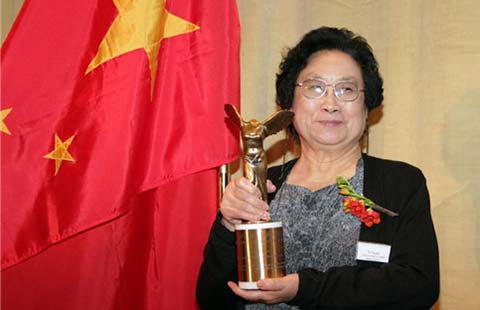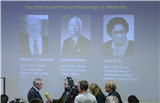Technology has impact on charitable giving
Updated: 2015-10-08 07:47
By He Dan(China Daily)
|
|||||||||
Mobile Internet makes it easier for the public to make donations, but it is also easier to cheat
The ubiquitous spread of mobile Internet technology, including online banking and social media apps, is reshaping the philanthropic sector in China. While the public's enthusiasm to donate has been greatly boosted, whether charitable money flows to the right place remains a question.
Inspired by Red Nose Day - a campaign started in the United Kingdom that is dedicated to raising money for underprivileged children and teenagers - the charity foundation of Internet giant Tencent Holdings launched a similar initiative this year that encouraged the public to give by pledging to match their donations to chosen charity projects.
China's law stipulates that only public foundations can raise funds from the public. However, large grassroots charity organizations are playing on the margins of the law in the era of mobile Internet.
The "Sept 9 charity day" encourages people to donate for charity projects that they like through WeChat and quick respond codes.
The three-day campaign, launched by Tencent, allowed public foundations to "adopt" grassroots organizations' charity projects so the projects, once approved, could raise funds in the campaign.
Liu Yi, founder of the China Mangrove Alert System - a grassroots organization in Xiamen, Fujian province, that focuses on protecting the country's mangroves - was concerned he might fall behind in the fundraising campaign, which started on Sept 7.
But his project received more than 44,000 yuan ($6,908) from about 480 netizens, or 200 yuan more than the original goal, in the three-day campaign.
Since Liu set up his organization in 2001, the majority of funding has come from foundations, and the mode of development has obvious weaknesses, he said.
"Foundations' funding of one project usually lasts no longer than two years, and such funding was not stable, but the time we spent in lobbying foundations was too much," he said.
Liu and his colleagues have made more efforts to make their projects more appealing and closer to people's daily lives, as mobile Internet has enabled them to bypass the outdated law.
Liu's organization has run a charity shop on Taobao, China's equivalent of eBay, so some couples donate to plant mangroves under the name of every guest who has attended their wedding ceremony.
"Such a creative way of participating in charity has met people's need of doing something good and preparing special gifts for their loved ones," he said.
The campaign allowed hundreds of grassroots nonprofit organizations to raise about 128 million yuan from more than 2 million netizens over the three days.
The achievement looked impressive compared with public donations in China in recent years.
String of scandals
Charity organizations in China received more than 100 billion yuan last year, with about one-tenth of that from the public, according to the annual report on charity donations released on Sept 19 by the China Charity and Donation Information Center, an organization affiliated with the Ministry of Civil Affairs.
The report also said that donations from the public last year had dropped for the third consecutive year.
A string of scandals involving charitable donations in the past few years dealt a heavy blow to the public's confidence in giving.
However, the quick development of mobile Internet technology is changing the situation.
Li Jin, secretary-general of the One Foundation, a charity that was founded by actor Jet Li in 2007 and registered as a public foundation in 2011, said the development of mobile Internet has pumped new energy into the philanthropic sector.
"In 2014, for the first time since our registration, donations we received from the public exceeded the amount from companies, and the trend continued in the first half of this year," he said.
The One Foundation has "adopted" 50 grassroots organizations, which raised 4.6 million yuan during the campaign, he added.
"Mobile Internet has definitely become a significant platform for charity organizations to raise funds," he said. "It also enables stronger bonding between givers and charity organizations."
Li added that, given the fact that a regular flow of individuals' small donations will replace companies' large donations as the main source of funding for charities, this social trend brings a new challenge for charity organizations: How to enrich individual donors' experience in giving and make it a habit to financially support the organization that they support.
While many have applauded the way that mobile Internet technology has sparked the public's enthusiasm for charity donations, some see it differently.
"I am not sure whether it is a good thing that some charity organizations have turned into advertisement companies that indulge in selling eye-catching stories to win the public's tears and compassion without careful planning of their charity projects," said Ding Chengcheng, secretary-general of the Shenzhen-based Union of Self-Disciplinary Organizations, which promotes transparency in the nonprofit sector.
Challenges imposed
More than 150 grassroots organizations nationwide are members of Ding's group.
Ding worries that the implementation of mobile Internet in the philanthropic sector will lead to a situation in which funding and resources will favor technology-savvy charities in developed regions rather than needy grassroots organizations in less-developed areas.
"Some program officers of grassroots organizations in western China could barely reply to an e-mail, but you cannot deny that what they do is important in addressing social issues," she said.
Additionally, the rapid spread of information through social media has imposed challenges for network administrators in discerning what is false, said Deng Guosheng, director of Tsinghua University's NGO Research Center, who added that those who prey on people's sympathy to get funds hurt the credibility of charities as a whole.
When the country was mourning the deadly blasts in Tianjin on Aug 12, which resulted in 165 dead and eight missing, a micro blog user made up a story about her father being killed in the explosion to lure donations from those who were touched by her posts.
The micro blog user, who lied about being a student, said she would study hard to enter a good university, as she had promised her father as he lay dying in the hospital.
Within 10 hours, 3,700 netizens felt sorry for her "plight" and donated about 100,000 yuan.
Meanwhile, some vigilant netizens started to raise questions about her identity. Some decided to report her to the police after they discovered that the girl was actually living in Fangchenggang, Guangxi Zhuang autonomous region, thousands of miles away from Tianjin.
The local procuratorate arrested her on suspicion of fraud on Aug 28, and the online donations were returned, Chinese media reported.
Deng, the NGO Research Center director, said mobile Internet technology has provided tools to enable charities to solve social problems in more creative ways.
He urged the government to beef up legislation and facilitate the development of an independent watchdog to supervise online charity activities.
hedan@chinadaily.com.cn
- Robot monk with artificial intelligence makes debut
- Nursing homes, more Chinese old people's final choices
- Hit-and-run luxury car driver detained in Beijing
- Park officials say glass cracks don't affect walkway's safety
- China becomes smaller for tourists
- Scenic spots packed with tourists on National Day Holiday
- Russian warplanes hit IS targets in Syria
- Senior US envoy to visit Japan, S Korea, China
- Russia, US agree to cooperate in solving Syria crisis: Russian FM
- Iranian President calls Iran deal victory over war
- LatAm experts praise Xi on yuan, globalization
- Evidence found of summertime water flows on Mars: study

 News you don't wanna miss over the National Day holiday
News you don't wanna miss over the National Day holiday
 TCM knacks to fight post-holiday syndrome
TCM knacks to fight post-holiday syndrome
 Zhang Lei wins fourth season of Voice of China
Zhang Lei wins fourth season of Voice of China
 Travel rush around China as National Day holidays end
Travel rush around China as National Day holidays end-
 Rising yuan use may lift IMF basket prospects
Rising yuan use may lift IMF basket prospects 
 China wins first Nobel in medicine
China wins first Nobel in medicine-
 Gary Locke: Candor key to relations
Gary Locke: Candor key to relations -
 Saving Chinese folk songs
Saving Chinese folk songs
Most Viewed
Editor's Picks

|

|

|

|

|

|
Today's Top News
Tu first Chinese to win Nobel Prize in Medicine
Huntsman says Sino-US relationship needs common goals
Xi pledges $2 billion to help developing countries
Young people from US look forward to Xi's state visit: Survey
US to accept more refugees than planned
Li calls on State-owned firms to tap more global markets
Apple's iOS App Store suffers first major attack
Japan enacts new security laws to overturn postwar pacifism
US Weekly

|

|








